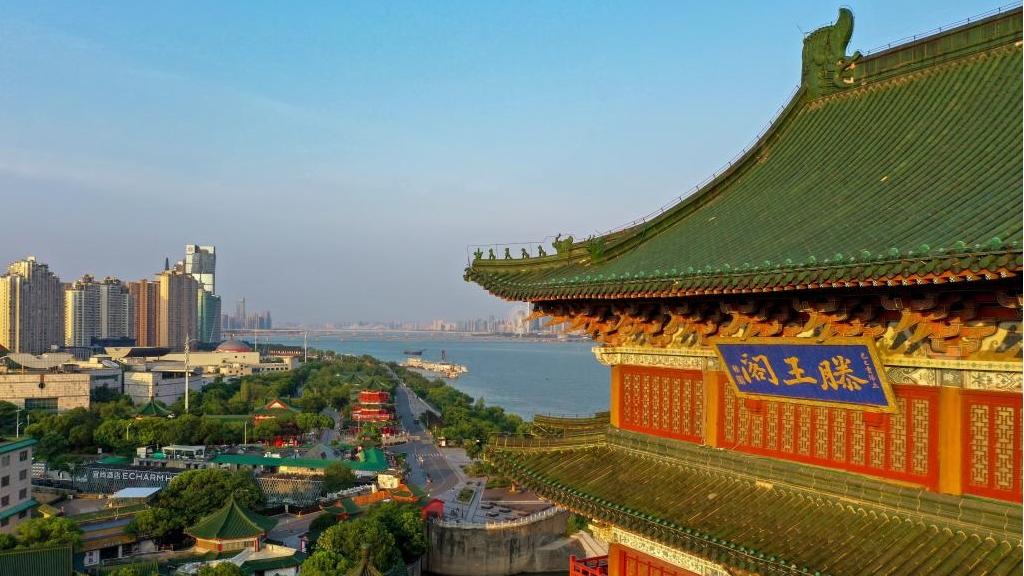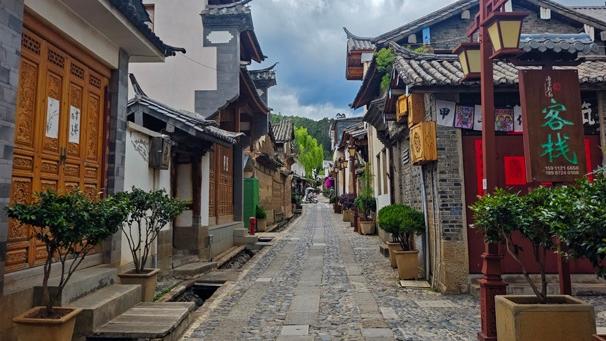AI injects new momentum to tourism industry, boosting consumption
Artificial intelligence (AI) technology has been rapidly and widely applied to the Chinese tourism industry this year. Major tourism platforms have integrated AI technologies, while provinces and cities have launched AI tourism service platforms with unique features.
AI has become a keyword for this year's summer travel as innovative applications of technology such as digital humans, the metaverse, exoskeletons, robot dogs, drone performances and augmented reality (AR) glasses are revitalizing the tourism and cultural sectors and unlocking new consumption potential, according to an industry observer on Tuesday.
At a visitor center of the Temple of Heaven in Beijing, one can rent a pair of AR glasses and embark on a smart guided tour. This device not only serves as an intelligent tour guide but also allows visitors to travel back in time and experience the grandeur of ancient sacrificial ceremonies while enjoying the real-life scenery, a staff member at the center told the Global Times on Tuesday.
Xue Yafei, a representative of Beijing-based VITURE Inc, an AR glasses developer, told the Global Times on Tuesday that the company has developed partnerships with several scenic spots and museums in Beijing to recreate historical and cultural landscapes through AR technology and create a unique time-travel experience.
"AR glasses bring to life the bustling street market, the vanished cultural relics and buildings, providing an immersive experience by digitally reproducing scenes from history," Xue said.
In some tourism hot spot cities such as Hangzhou, Xi'an and Wuhan, local authorities have launched unique travel routes and activities that integrate scientific innovation, cultural heritage and natural landscapes. For example, at Tengwang Pavilion scenic area in Nanchang, East China's Jiangxi Province, a virtual digital human named Wang Bo serves as an AI tour guide. This "AI Wang Bo" not only narrates the history of the pavilion but also customizes tour itineraries based on visitors' preferences, CCTV news reported.
Travel authorities in Zhuhai, South China's Guangdong Province debuted a tourism large model on July 4, providing intelligent services throughout the travel process, including itinerary planning, intelligent ordering and tour guides, the Nandu Daily reported.
In recent months, multiple Chinese provinces and municipalities have launched AI agents to offer tourism advice, said an industry expert.
Meanwhile, a growing number of Chinese tourists are leveraging AI to enhance their travel experiences. This trend is attributed to the widespread adoption of AI technology by travel agencies and local tourist authorities, the Xinhua News Agency reported.
A Sichuan-based visitor surnamed Liao told the Global Times on Tuesday that during a recent self-driving trip in Shanghai, she used an in-car AI large model to help plan her itinerary, including arrangements for clothing, food, accommodation and transportation.
"Compared with traditional tourism platforms, AI platforms offer more interactive experiences. Remarkably, they can tailor plans to suit our preferences, including accommodation budgets and food flavors," she said.
The increasing popularity of these high-tech applications indicates that the tech-tourism model has been widely accepted by the public, as they have generated buzz and driven increases in visitor traffic, confirming consumer expectations, Tian Feng, president of Fast Think Institute and former dean of Chinese AI software giant SenseTime's Intelligence Industry Research Institute, told the Global Times on Tuesday.
Experts said that tech-powered tourism products will become a new consumption trend. "AI has forged new pathways for tourism and cultural consumption, catering to people's demand for exploring authentic historical and cultural heritage, enjoying family trips, and partaking in educational experiences," Tian said
Wang Peng, an associate research fellow at the Beijing Academy of Social Sciences, told the Global Times on Tuesday that while embracing technology, it is important to be wary of the risk of "over-reliance on technology." This includes blindly pursuing AI interaction at the expense of human warmth or insufficient data privacy protection.
AI and human services should complement each other, Wang noted. The integration of technology and tourism is fundamentally a people-oriented innovation.
Wang explained that when AI can interpret a tourist's smile, robots can convey cultural warmth, and the metaverse can redefine the boundaries of time and space, tourism consumption will evolve from mere functional satisfaction to emotional resonance. Tourist attractions need to strike a balance between efficiency and warmth, innovation and tradition, with technology as the backbone and culture as the soul, in order to unlock the long-tail effect in the tourism market.
Tian said that introducing new technologies has helped the tourism industry form new quality productive forces. Instead of discarding traditional industries, China aims to revitalize them with technological innovation tailored to local development needs.
According to this year's Government Work Report, China will create a full range of new consumption scenarios to accelerate the growth of digital, green, smart and other new types of consumption. The country will improve the leave system and ensure its effective implementation to unlock consumption potential in culture, tourism, sports, and other sectors.
Photos
Related Stories
- Tiny city,?big impact: Arxan emerges as?cross-cultural bridge
- Many places in China enter peak tourist season
- Family travel boom boosts China's summer tourism market
- South China island province offers 40 million yuan in summer tourism subsidies
- Economist sees strong Chinese arrivals to sustain Malaysia's tourism growth
- Integration of sports and tourism gains popularity, brings new opportunities
- "Nihao! China" in Kuala Lumpur highlights top Chinese tourist attractions
- China-Sri Lanka-Maldives Tourism Forum kicks off in Colombo
- Tourism boom in Confucius' birthplace
- 'Increasingly cool China' image resonates worldwide: foreign ministry
Copyright © 2025 People's Daily Online. All Rights Reserved.









